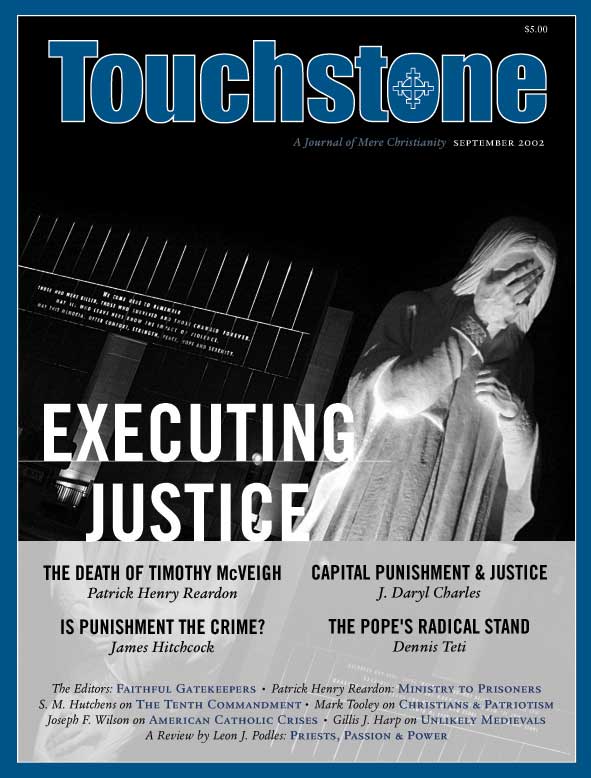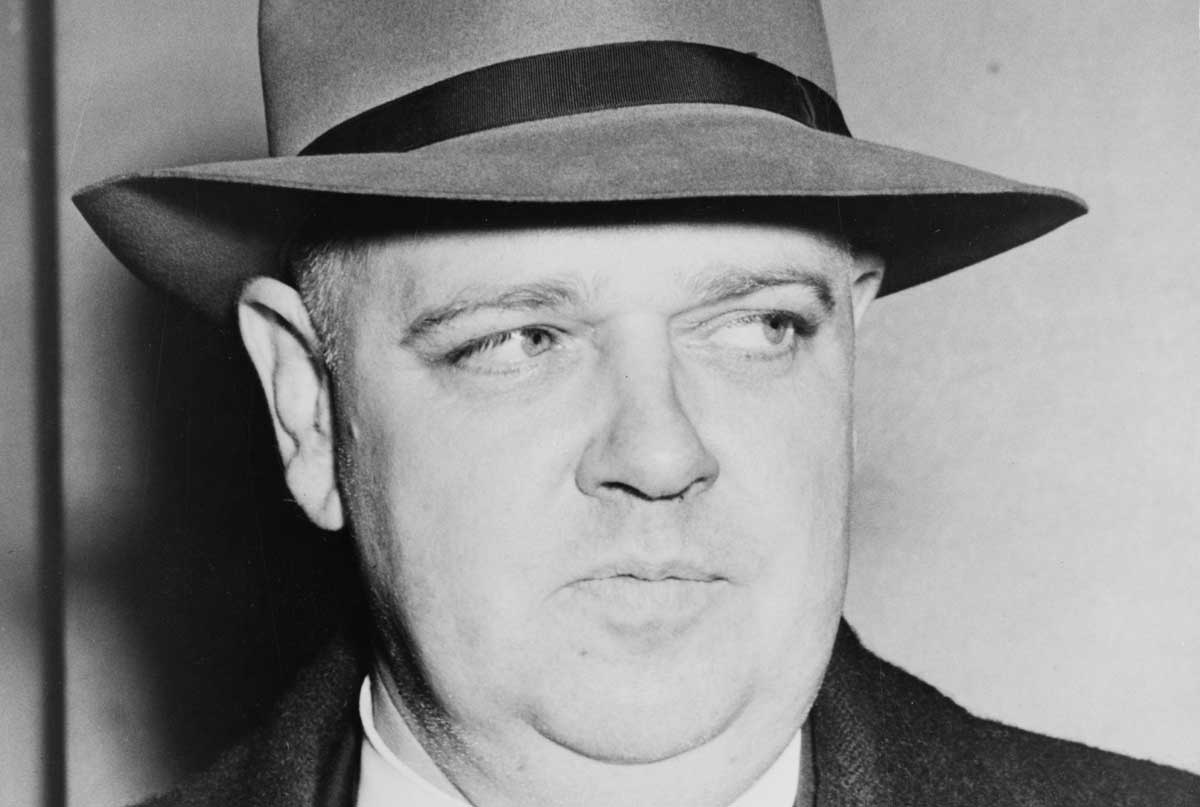An Unlikely Window on the Medieval Church
Gillis J. Harp on Reforming the Reformed
One may see no vested priests or private masses being offered in chantry chapels, yet a lot in Evangelical worship today owes much to the un-Reformed habits of the late Middle Ages. I have been struck by this supreme historical irony as I visited many Evangelical churches in the past several years (the following comments are not aimed at any single congregation or denomination).
First, I encountered the extraordinary passivity of these congregations. Aside from usually standing to sing, the laity sit in silence for the entire service. They neither kneel nor stand to pray. Moreover, at the end of every prayer (offered by the minister alone), they are mute; most Protestant pastors must literally answer themselves with an audible “Amen.” Of course, levels of congregational participation vary among congregations, but the norm is amazingly passive. One would not be surprised to discover the laity bringing prayer beads like their medieval forerunners, just to have something to do during the service.
Second, as there is a paucity of participation, so there is often a scarcity of Scripture. While the biblical passage under consideration might be well exposited, the number of verses actually read is usually very small indeed. I have attended many services where a single verse was the extent of the lection for that Lord’s Day. Nor is there any compunction against reading exclusively from the New Testament. Sunday after Sunday may go by with no readings from the Old Testament during the main morning service. Is it possible that no one has ever heard of the Marcionite heresy? It does make me wonder.
Third, communion is administered infrequently, as in the late Middle Ages, so the faithful only receive a few times a year. And Evangelicals have found a new way to effectively deny the cup to the laity by avoiding the biblical element of wine. (Where is Jan Hus when we need him?) Against dominical command and the clear words of the New Testament, most Evangelicals persist in employing grape juice rather than wine in the sacrament. Paradoxically, those whose approach to Scripture might be deemed most literalistic choose to set aside Christ’s clear injunction.
Here, in a sense, is a modern Evangelical version of what the Anglican Thirty-nine Articles call a “work of supererogation.” Evangelicals may still reject the idea of accumulating surplus merit, but the implication of substituting grape juice for wine in the sacrament is that we know better than our Lord and can be more pious than Jesus. And some Evangelicals have an attitude toward alcohol that one could only describe as superstitious.
Apparently, the mere taste of wine from one of those tiny shot glasses they employ is enough to throw alcoholics off the wagon and make teetotalers into profligates. Of course, the other irony is that this teetotalism reflects an impulse that Evangelicals excoriate others for, i.e., the elevation of tradition over the clear teaching of Scripture. For some Evangelicals, who rejected Luther’s appeal to Scripture out-of-hand and would not relinquish their late-medieval traditions, it seems that traditions of the past hundred years are authoritative, just not those of 500 or 1,500 or 2,000 years ago.
When questioned about these points, Evangelicals often respond: “We can’t change these things; that would be too divisive.” I doubt whether the percentage of genuine alcoholics in Evangelical congregations is terribly high, but this tiny minority can nevertheless hold the rest of these congregations hostage, while those who propose following our Lord’s instructions are labeled “divisive.” Instead of semper reformanda, one hears the claims of tradition (albeit of a recently minted sort). It almost reminds one of the response of some Roman Catholic authorities to Luther: “Don’t confuse me with what Scripture says, just let me preserve my late-medieval traditions.”
Of course, the other irony in all this is that the magisterial Reformers—Luther, Calvin, Cranmer among them—would have been horrified by these common Evangelical practices. For American Evangelicals to return to an authentic catholicity, they would do well to recover the faith and practice of the sixteenth-century Reformers. Such a move (i.e., returning to the Reformation) would make them bona fide Protestants and, simultaneously, be one of the most truly ecumenical things that Evangelicals could do.
Gillis J. Harp is Professor of History at Grove City College in Pennsylvania and the author of Brahmin Prophet: Phillips Brooks & the Path of Liberal Protestantism (Rowman & Littlefield, 2003). He and his family worship at Grace Anglican Church in Slippery Rock, Pennsylvania.
subscription options
Order
Print/Online Subscription

Get six issues (one year) of Touchstone PLUS full online access including pdf downloads for only $39.95. That's only $3.34 per month!
Order
Online Only
Subscription

Get a one-year full-access subscription to the Touchstone online archives for only $19.95. That's only $1.66 per month!
bulk subscriptions
Order Touchstone subscriptions in bulk and save $10 per sub! Each subscription includes 6 issues of Touchstone plus full online access to touchstonemag.com—including archives, videos, and pdf downloads of recent issues for only $29.95 each! Great for churches or study groups.
Transactions will be processed on a secure server.
more from the online archives
calling all readers
Please Donate
"There are magazines worth reading but few worth saving . . . Touchstone is just such a magazine."
—Alice von Hildebrand
"Here we do not concede one square millimeter of territory to falsehood, folly, contemporary sentimentality, or fashion. We speak the truth, and let God be our judge. . . . Touchstone is the one committedly Christian conservative journal."
—Anthony Esolen, Touchstone senior editor










